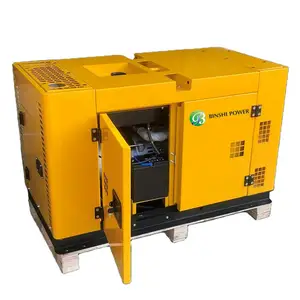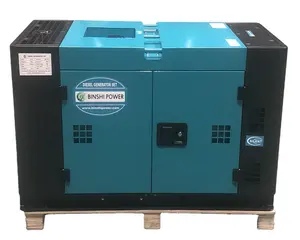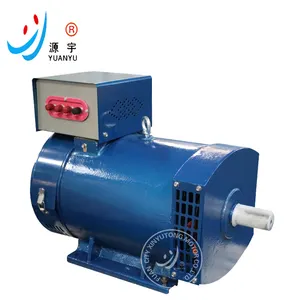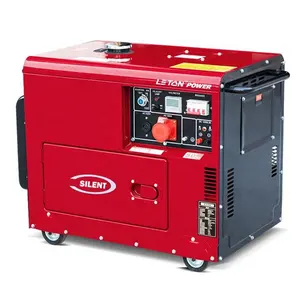Popular in your industry




















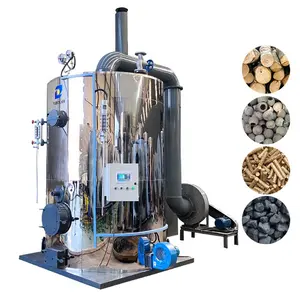
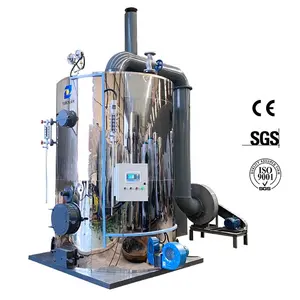











































Related Searches:

















































































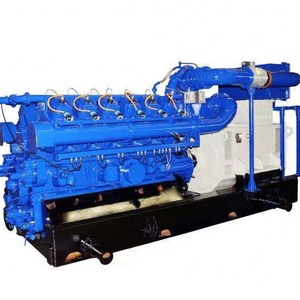
























































Top categories
About small biomass power generator
As the world pivots towards sustainable energy solutions, small biomass power generators are emerging as a game-changer for operations seeking greener alternatives. These innovative systems harness the latent energy of organic materials, offering a beacon of hope for a cleaner, more sustainable future. This article delves into the intricacies of biomass power generation, exploring how small-scale generators are revolutionizing the energy landscape. From the versatility of biomass conversion methods to the adaptability of small generators in various settings, we uncover the potential of these technologies to create a sustainable synergy between energy production and environmental stewardship.
Understanding Biomass Power Generation

Biomass energy harnesses the power of organic materials, derived from plants and animals, to generate electricity and other forms of power. It taps into the sun's energy indirectly captured by living organisms through photosynthesis, transforming it into usable energy. Biomass can be converted through various methods such as direct combustion to produce heat, or processed into biofuel for indirect use. Notably, thermal conversion processes like pyrolysis and gasification alter biomass in the absence of oxygen, producing by-products like biochar, syngas, and pyrolysis oil, all of which can be utilized as energy sources. Biochar, in particular, serves as a carbon-rich substance that enhances soil quality and acts as a carbon sink, contributing to carbon sequestration efforts. These conversion methods underscore the versatility of biomass as a renewable energy source, capable of generating electricity and creating valuable by-products for agricultural and environmental applications.
The Emergence of Small Biomass Generators
The advent of small biomass generators marks a significant shift in renewable energy technology. These systems, which can run on a variety of biomass materials, are becoming increasingly viable for small-scale applications. Unlike large-scale biomass plants, small generators are designed to be more adaptable and can be integrated into a range of settings for both heat and power generation. The direct combustion of biomass material, such as wood chips, agricultural waste, or even sawdust, is the most common method employed in these systems. They function by burning the biomass to produce steam that drives a turbine, generating electricity.
Small biomass power generators on the market vary in their technological approaches. Some utilize gasification, producing a synthesis gas with a usable energy content, while others employ pyrolysis, yielding bio-oil. These technologies not only contribute to the diversity of biomass power solutions but also enhance the efficiency of energy production. The systems are designed to cater to the needs of smaller operations, potentially offering a more sustainable and controllable source of energy. They embody the principle of dispatchability, providing energy on-demand, much like traditional fossil fuel systems, but with the added benefit of utilizing renewable resources.
The emergence of these generators is also a response to the need for more efficient energy systems. Small-scale biomass electric plants have been developed to achieve higher overall energy efficiency, sometimes up to approximately 80% when combined heat and power (CHP) configurations are used. This efficiency is a significant increase compared to standard electricity-only systems. The adaptability and improved efficiency of small biomass generators make them a compelling option for sustainable operations, particularly in areas with ready access to biomass resources.
Types of Biomass Power Generators on Alibaba.com

Alibaba.com showcases a diverse range of biomass power generators, tailored to meet the energy needs of various industrial operations. The platform features systems that are CE certified, indicating compliance with international standards. The range extends to various boiler systems capable of providing steam and hot water. For higher energy demands, the platform offers substantial power outputs, ranging from 500KW to 1.5MW.
Smaller scale operations can benefit from the compact and environmentally friendly solutions that promise energy efficiency and sustainability. For a more robust solution, the gas engine power generators available in various capacities, provide a reliable power source using a range of gases.
Lastly, Alibaba.com caters to the needs of smaller enterprises with wood pellet fired steam generators and small biomass power generators that are ideal for businesses looking to adopt renewable energy sources while ensuring a steady and reliable energy supply.
Applications in Sustainable Operations
Biomass energy, derived from organic materials like crops, agricultural waste, and animal manure, offers a renewable energy source for agricultural operations. Its application in agriculture enables farmers to leverage a sustainable and self-sufficient energy supply, minimizing their environmental footprint and energy expenses. The conversion of biomass into heat, electricity, and biofuels through small biomass power generators can be a cornerstone in sustainable farming practices.
The utilization of biomass for energy production aids in managing agricultural waste effectively. By transforming crop residues, prunings, and animal waste into energy, these small generators not only address waste management challenges but also mitigate the environmental impact of waste disposal. This approach to energy generation aligns with sustainable operations, providing a practical solution for farmers to convert their organic waste into a valuable resource.
Key Features of Small Biomass Power Generators

Small biomass power generators harness the energy potential of biomass feedstocks through a variety of conversion methods. The efficiency of these generators is influenced by the energy content, moisture content, and chemical composition of the biomass used. A key feature of these generators is their ability to utilize both high heating value (HHV) and low heating value (LHV) feedstocks, adapting to the moisture content of the biomass. The HHV includes the energy recovered by condensing water vapor, while the LHV represents the heat released without this recovery, making it a more accurate measure of the usable heat during combustion.
The versatility of small biomass power generators is evident in their ability to process diverse feedstocks, ranging from virgin crops to various waste biomasses like agricultural residues. This not only improves the efficiency of biomass energy but also addresses the food versus fuel debate by utilizing non-edible biomass sources. Moreover, the carbon neutrality of biomass, where the CO2 emitted during combustion is offset by the CO2 absorbed during photosynthesis, positions these generators as a sustainable energy solution with a neutral carbon footprint.
Technological advancements have enhanced the conversion processes, making small biomass power generators a practical option for renewable energy production. They are capable of producing not just heat and electricity but also modern biofuels, contributing to a diversified energy portfolio. As the technology matures, these generators are expected to play a pivotal role in the transition towards more sustainable energy practices, leveraging the inherent renewability of biomass.
Materials and Technologies in Biomass Generators
Biomass power generation harnesses the energy inherent in organic materials, with technologies varying to accommodate different types of biomass feedstock. Direct combustion systems are prevalent, where biomass such as wood chips, sawdust, or pellets is ignited to heat water in a boiler, creating steam. This steam is then expanded through a turbine to generate electricity. In contrast, gasification systems limit the amount of air to produce a combustible gas, offering a cleaner alternative with a usable heating value. Pyrolysis, another technology, rapidly heats biomass without oxygen, yielding bio-oil suitable for fuel.
Materials for biomass generators are diverse, ranging from agricultural residues like corn stover to woody biomass and even animal and human waste. The efficiency and suitability of these materials depend on their moisture content and the energy recovery process employed. For instance, wetter materials are often used in anaerobic digestion processes to produce biogas, while dryer biomass is more suited to direct combustion or gasification.
The technology's efficiency is also influenced by the system's design. Fluidized-bed combustion systems, for example, offer more complete carbon conversion and can utilize a broader range of feedstocks compared to fixed-bed combustors. These systems, however, may require more power to operate due to the need for fans and other equipment to maintain the bed's suspension, impacting the overall system efficiency.
Advantages of Adopting Biomass for Energy
Biomass, as a renewable energy source, is derived from the combustion of animal and plant waste. It presents itself as a sustainable alternative with several advantages. One of the primary benefits is its ubiquitous availability. The organic materials for biomass are continually produced, ensuring a consistent supply of energy.
Another significant advantage is its carbon neutrality. Biomass fuels release only the amount of carbon that was absorbed by plants during their growth, making it a cycle that does not increase atmospheric CO2 levels. This characteristic also contributes to reducing dependence on fossil fuels, which are not only finite but also come with environmental concerns due to their carbon footprint and the pollution associated with their extraction and processing.
Economically, biomass can be less costly than fossil fuels. The technology required for biomass energy is generally more affordable, allowing for potentially higher profits from lower investments. Additionally, it provides a revenue stream for waste producers by converting waste into energy, thereby adding value to what would otherwise be a disposal issue.
Furthermore, the use of biomass energy can significantly reduce the volume of waste destined for landfills, decreasing the environmental impact of waste disposal. Despite certain inefficiencies and environmental concerns that need addressing, ongoing research and innovation are improving the viability of biomass as a cleaner and more widely available energy source.
Installation and Maintenance Considerations
The maintenance of biomass plants is crucial for their efficient operation and longevity. Scheduled maintenance tasks are essential, including inspections, service, adjustments, and planned shutdowns to ensure the combustion equipment is optimized. This process involves a thorough examination of the plant's components to detect any malfunctions or discrepancies.
A comprehensive maintenance strategy encompasses various approaches. Corrective Maintenance addresses operational deficiencies, while Preventive Maintenance involves regular equipment checks to prevent future issues. Predictive Maintenance utilizes computer applications to monitor the plant's condition, anticipating potential problems before they arise. Overhaul, or Zero Hour Maintenance, resets the equipment to a state equivalent to new, ensuring maximum performance.
Specific equipment within thermal power plants, such as boilers, tanks, cooling towers, and fire-fighting installations, may be subject to regulatory standards that mandate periodic inspections and maintenance by certified professionals. Adhering to these regulations is not only a legal requirement but also a step towards ensuring safety and efficiency within the plant.
Case Studies: Success Stories from Alibaba Buyers
Conclusion
In conclusion, small biomass power generators represent a significant stride towards sustainable energy practices. With the ability to convert a variety of organic materials into electricity and heat, these systems offer a versatile and eco-friendly solution to energy needs. The rise of small-scale biomass technology on platforms like Alibaba.com demonstrates a growing market for renewable energy sources that cater to diverse industrial operations. The adoption of these generators not only capitalizes on the ubiquity and carbon neutrality of biomass but also presents economic advantages by turning waste into a valuable resource. As we have seen, the integration of these systems into agricultural and industrial operations can lead to a substantial reduction in waste and a decrease in the reliance on fossil fuels. While installation and maintenance considerations are crucial for optimal performance, the overall benefits of biomass power generators make them a compelling choice for those looking to invest in a sustainable energy future. The success stories emerging from Alibaba buyers serve as a testament to the viability and transformative potential of these small-scale renewable energy solutions.
